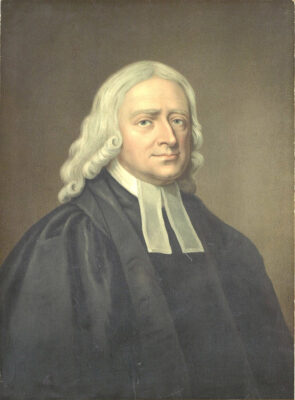Theologians
John Wesley Quote: “Do all the good you can, By all the means you can, In all the ways you can, In all the places you can, At all the times you can, To all the people you can, As long as ever you can.” – John Wesley
 John Wesley, a prominent Christian theologian, cleric, and co-founder of the Methodist movement, left behind a powerful quote that continues to resonate with people around the world. “Do all the good you can, By all the means you can, In all the ways you can, In all the places you can, At all the times you can, To all the people you can, As long as ever you can.” These words encapsulate the essence of Wesley’s philosophy and serve as an inspiration for individuals seeking to make a positive impact in the world.
John Wesley, a prominent Christian theologian, cleric, and co-founder of the Methodist movement, left behind a powerful quote that continues to resonate with people around the world. “Do all the good you can, By all the means you can, In all the ways you can, In all the places you can, At all the times you can, To all the people you can, As long as ever you can.” These words encapsulate the essence of Wesley’s philosophy and serve as an inspiration for individuals seeking to make a positive impact in the world.
The Life and Legacy of John Wesley
John Wesley was born in Epworth, England, in 1703. Raised in a devout Anglican family, he developed a strong religious foundation from an early age. Wesley’s spiritual journey led him to found the Methodist movement in the 18th century, alongside his brother Charles Wesley. This movement aimed to revitalize the Church of England and promote a personal, transformative relationship with God.
Wesley’s teachings emphasized the importance of personal faith, spiritual discipline, and social justice. He believed in the concept of prevenient grace, which suggests that God’s grace is available to all individuals even before they actively seek it. Wesley’s inclusive theology and emphasis on personal piety attracted a large following, and the Methodist movement quickly spread throughout Britain and the United States.
Understanding the Quote
At the heart of Wesley’s quote lies the fundamental principle of doing good. By urging individuals to “do all the good you can,” Wesley encourages a proactive approach to kindness and service. This call to action goes beyond mere passive intentions and emphasizes the necessity of tangible actions that benefit others.
The quote also highlights the importance of utilizing all available means and resources to do good. Wesley believed in the power of every individual to make a difference, regardless of their background or circumstances. Whether through financial contributions, acts of kindness, or personal involvement in charitable causes, Wesley encouraged his followers to explore diverse avenues to express their benevolence.
Doing Good: Means and Ways
Doing good encompasses a wide range of actions, both big and small. It involves acts of kindness, charity, and selflessness that positively impact individuals and communities. There are countless ways to engage in doing good, and each person can find their unique path.
One way to start doing good is by practicing random acts of kindness in daily life. Simple gestures such as helping someone carry their groceries, offering a listening ear to a friend in need, or volunteering at a local charity can make a significant difference in someone’s life. These small acts of goodness create a ripple effect that spreads positivity.
In addition to personal acts of kindness, contributing to broader causes and organizations is another means of doing good. Donating to charities, supporting educational initiatives, or participating in community development projects can bring about positive change on a larger scale.
Doing Good Everywhere
Wesley’s quote emphasizes the importance of doing good in all places. It encourages individuals to extend their benevolence beyond their immediate surroundings and consider the needs of others globally. The world is interconnected, and by recognizing the struggles faced by people in different regions and cultures, we can work towards a more inclusive and compassionate society.
However, doing good everywhere comes with challenges. Cultural and geographical barriers can hinder our ability to understand and address the needs of diverse communities. Overcoming these challenges requires open-mindedness, cultural sensitivity, and a willingness to learn from others. By engaging in dialogue and actively seeking ways to bridge these gaps, we can truly make a positive impact worldwide.
Doing Good at All Times
The quote by John Wesley highlights the importance of doing good at all times. It is a reminder that our commitment to kindness should not waver based on convenience or circumstances. Goodness knows no bounds of time, and there are opportunities for benevolence in every moment.
To truly embrace the spirit of doing good at all times, we must cultivate a mindset of empathy and compassion. This means actively looking for opportunities to help others, even when faced with personal challenges or limitations. By focusing on the needs of others and extending a helping hand, we contribute to a world where goodness becomes a constant presence.
Doing Good to All People
Wesley’s quote stresses the importance of doing good to all people. It invites us to transcend boundaries and treat every individual with kindness, respect, and dignity. In a diverse and interconnected world, practicing inclusivity is crucial to fostering understanding and harmony.
Doing good to all people means breaking down barriers and prejudices. It means recognizing the inherent worth and value of every human being, regardless of their background, race, or beliefs. By treating others with love and compassion, we create a more inclusive and compassionate society.
The Eternal Commitment
The quote by John Wesley concludes with the idea of an eternal commitment to doing good. It encourages individuals to engage in a lifelong journey of benevolence and service. Doing good is not a one-time act, but a continuous effort to make a positive impact on the world.
By embracing this eternal commitment, we leave behind a lasting legacy. Our actions inspire others to follow the same path, creating a chain reaction of goodness that transcends generations. Each act of kindness, no matter how small, contributes to building a better world for future generations to come.
Conclusion
John Wesley’s quote, “Do all the good you can, By all the means you can, In all the ways you can, In all the places you can, At all the times you can, To all the people you can, As long as ever you can,” serves as a powerful reminder of our capacity to make a positive impact on the world. It calls us to action, urging us to embrace kindness, compassion, and service in our daily lives.
By doing good, we not only benefit those around us, but also experience personal growth and fulfillment. Every act of kindness, no matter how small, has the potential to create a ripple effect of positivity that can transform lives and communities.
So let us take Wesley’s words to heart and embark on a lifelong journey of doing good. Let us be the change we wish to see in the world and leave behind a legacy of love, compassion, and kindness.
FAQs
- What inspired John Wesley to promote doing good? John Wesley’s strong faith and belief in the power of God’s grace inspired him to promote doing good. He believed that by practicing acts of kindness and service, individuals could reflect the love of God and make a positive impact in the world.
- How can I start doing good in my community? You can start doing good in your community by identifying the needs and issues that require attention. Engage with local charities, volunteer your time and skills, and support initiatives that align with your values. Small acts of kindness, such as helping neighbors or participating in community events, can also make a significant difference.
- What are some simple acts of kindness I can do? Simple acts of kindness include offering a smile to a stranger, holding the door for someone, or giving a compliment. Additionally, you can donate items you no longer need, write a thoughtful note to a friend, or support a local business. Remember, even small gestures can brighten someone’s day.
- How can I overcome challenges in doing good? Overcoming challenges in doing good requires determination and an open mind. Educate yourself about the issues you wish to address, and collaborate with like-minded individuals or organizations. Adaptability and flexibility are key when facing obstacles, as they allow you to find alternative approaches and solutions.
- Can doing good really make a difference in the world? Absolutely! Doing good has the power to create a positive impact on individuals, communities, and society as a whole. Every act of kindness and every effort to improve the lives of others contributes to a better world. Together, our collective actions can bring about meaningful change and inspire others to do the same.
